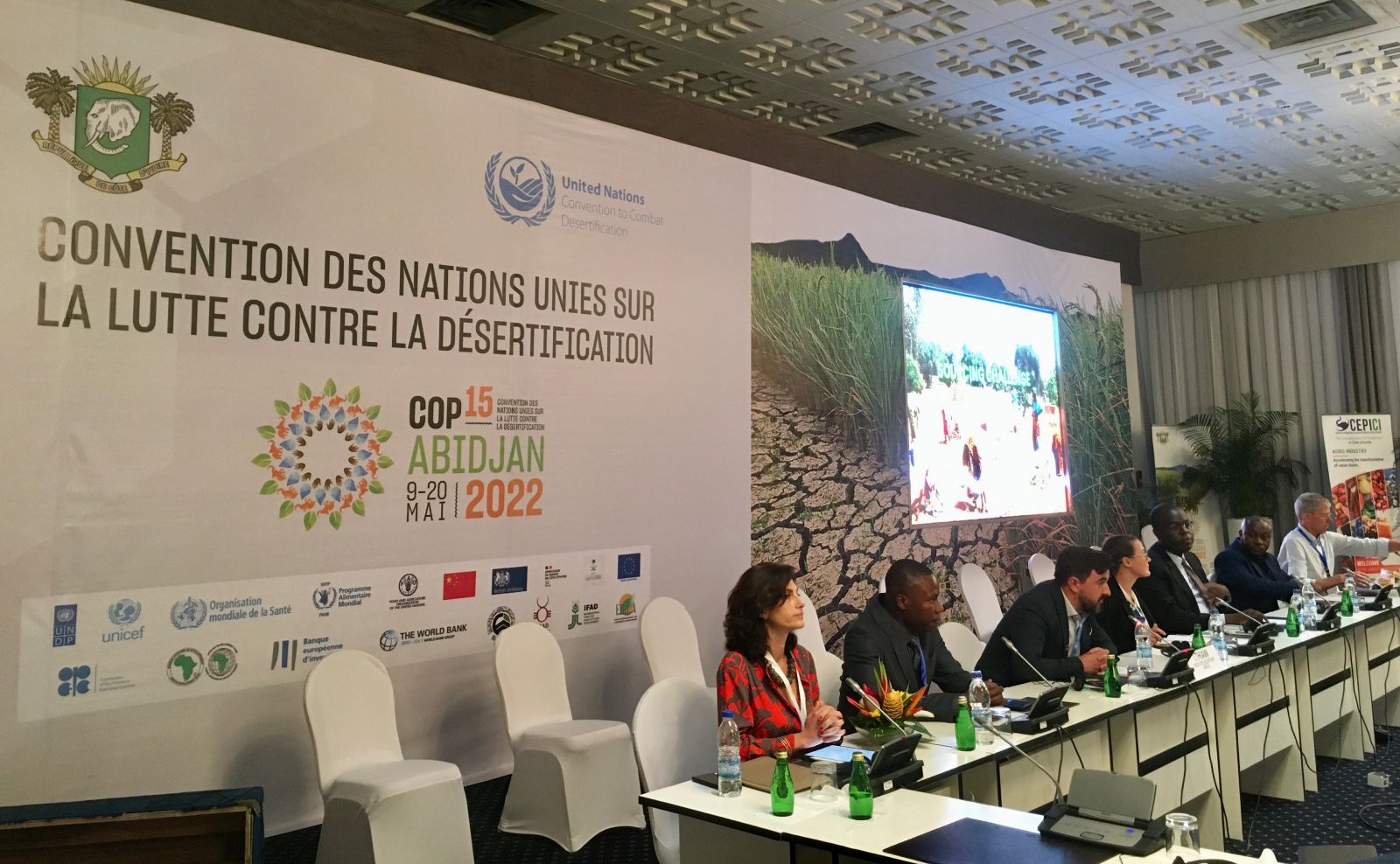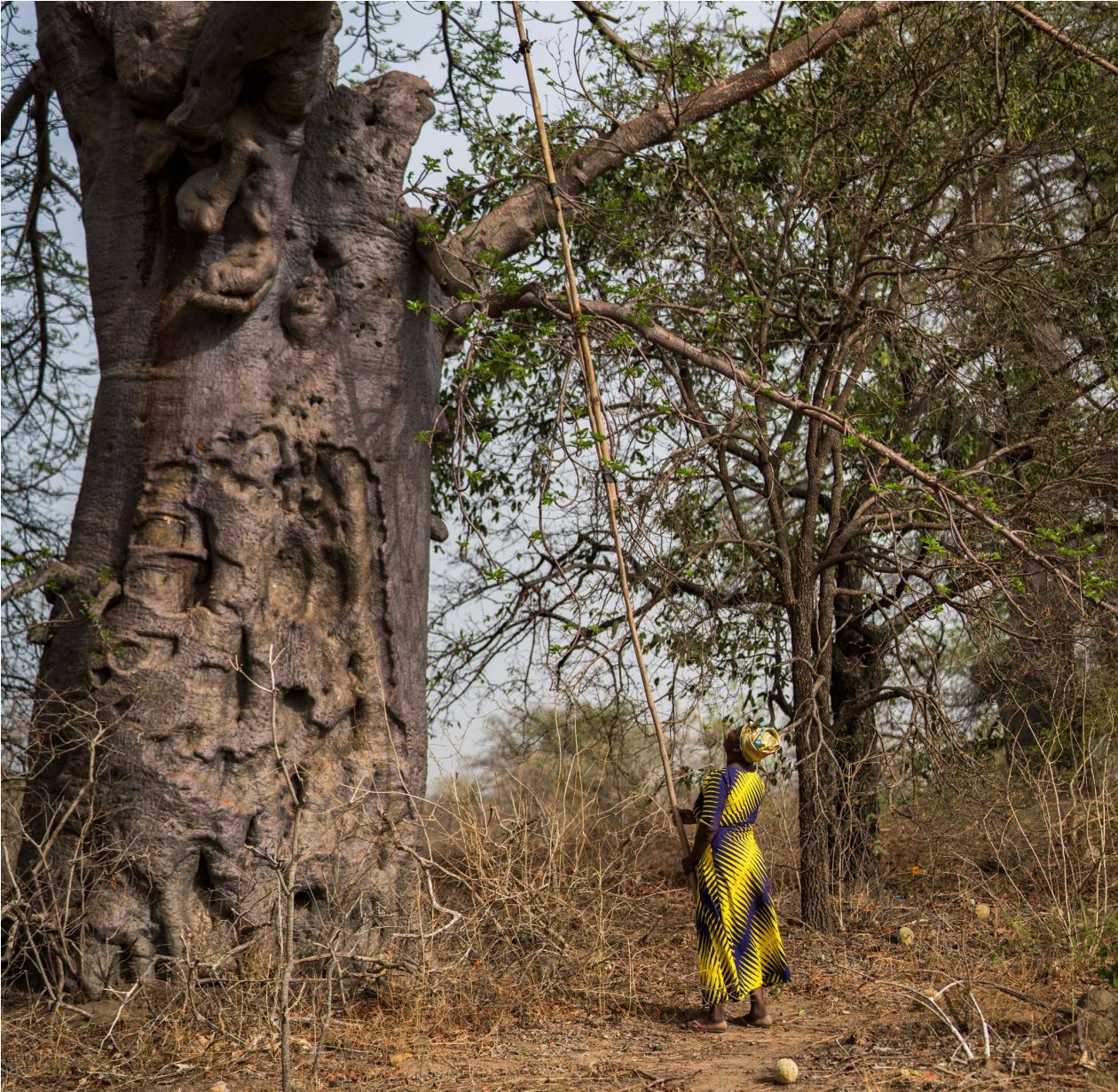
Regenopolis, commissioned by the World Economic Forum’s 1t.org initiative, conducted a strategic assessment to develop commercially viable pathways for land restoration in the Sahel. This project aimed to enhance tree-based agricultural value chains, supporting the African Union’s Great Green Wall initiative in ecological restoration, climate resilience, and local development.
The Great Green Wall (GGW) initiative, spanning from Senegal to Djibouti, aims to restore 100 million hectares of land, sequester 250 million tonnes of carbon, and create 10 million jobs by 2030. Despite strong political backing and investment, progress has been hindered by ecological fragility, limited local value capture, and insufficient private sector involvement. The region’s potential for high-value tree crops with local and global market demand remains largely untapped, presenting an opportunity to merge regeneration with economic empowerment.
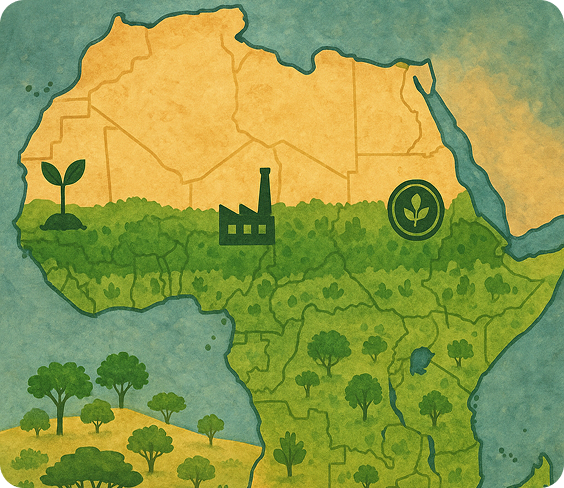
Led by the World Economic Forum’s 1t.org platform and in collaboration with Archipel&Co, Regenopolis played a central role in this strategic assessment. Our involvement included several key activities:
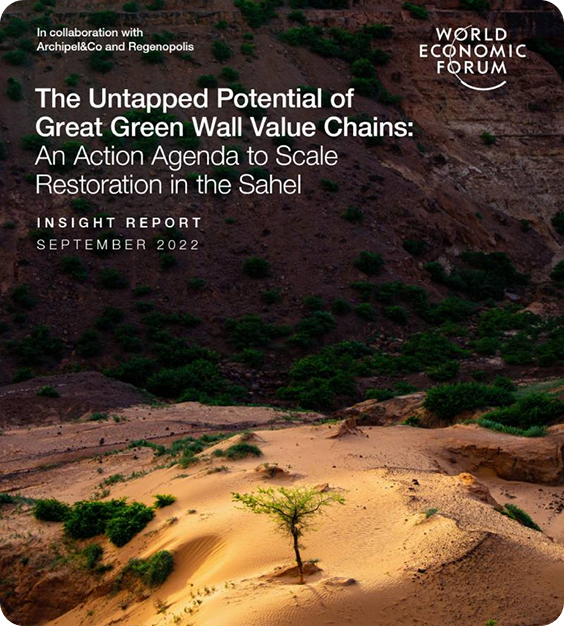
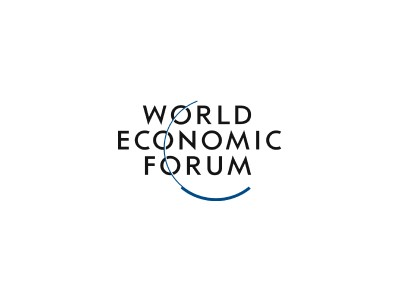
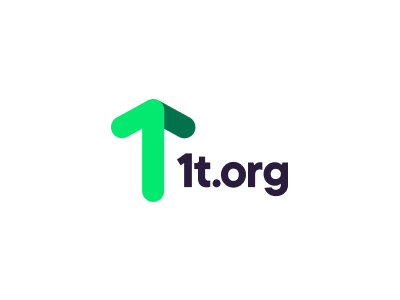

The project resulted in significant outputs and outcomes
